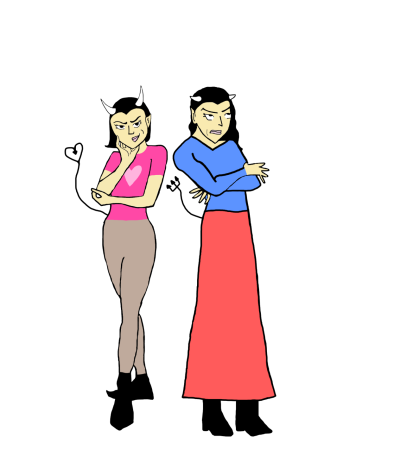Toxic masculinity and the Gillette ad
March 1, 2019
 In January Gillette, a major razor company, launched a controversial ad campaign entitled The Best Men Can Be. The ad is similar to the #MeToo movement, demonstrating the way toxic masculinity affects both men and women, whether it be bullying or sexual harassment. The ad also points out issues with phrases like “boys will be boys” and the consequences of uttering this phrase. If you watched the ad, you will be aware of the thousands of people that were simply infuriated by the idea of being asked to be a better person. The overall message of the ad was this: Treat people with respect, and speak up if you see someone else being mistreated. This was lost in translation to many.
In January Gillette, a major razor company, launched a controversial ad campaign entitled The Best Men Can Be. The ad is similar to the #MeToo movement, demonstrating the way toxic masculinity affects both men and women, whether it be bullying or sexual harassment. The ad also points out issues with phrases like “boys will be boys” and the consequences of uttering this phrase. If you watched the ad, you will be aware of the thousands of people that were simply infuriated by the idea of being asked to be a better person. The overall message of the ad was this: Treat people with respect, and speak up if you see someone else being mistreated. This was lost in translation to many.
The term “toxic masculinity” has come up more often in recent years. Author and mental health expert Terry Kupers defines toxic masculinity as “the constellation of socially regressive male traits that serve to foster domination, the devaluation of women, homophobia and wanton violence.”
Without proper understanding of what toxic masculinity actually means, it can be easy to misinterpret it and take it offensively. Many people angered by the ad claimed it was painting all men in a bad light, claiming that men in general are now being perceived as “toxic.” In reality, toxic masculinity is not an attack on men, and it is not saying that being masculine is inherently bad, the term toxic masculinity is referring to the way that men are being hurt and affected by society’s gender schemas.
Toxic masculinity is not being able to talk about your feelings in fear of being deemed unmanly. Strength is valued while emotions are a weakness. Toxic masculinity is having your definition of manhood consist of sex, violence, power and aggression. Commenting on why toxic masculinity is bad is not a diss towards those that display traditionally masculine traits, it is allowing room for men to have more “feminine” traits and open up a dialogue about gender roles, assault and bullying.
Some men have simply been put-off by the idea of a corporation telling them how to act, and what to do. Some men have even threatened to create an ad against women in rebuttal, describing the dangers of “toxic femininity.” What men fail to realize is women have been told how to behave and look since the beginning of advertising. Women have been told to lose weight, gain weight, wear this not that, shave your legs, color your hair, embrace your natural looks, wear this makeup, be a good wife, mother, daughter. We, women are told how to behave by our families, strangers and friends everyday.
Here is the thing; by getting upset by the ad telling you to be a better person, you are in fact, proving yourself to be part of the problem. If the idea of holding other men accountable for their actions upsets you, you may have some friends that are crossing boundaries. If the idea of being told to stand up for what is right upsets you, you may be contributing to the issue yourself.
Photo provided by Creative Commons












